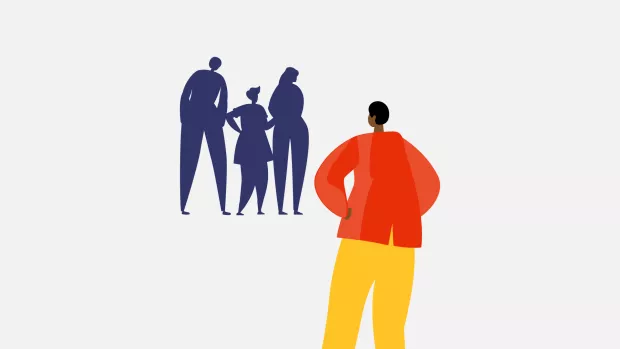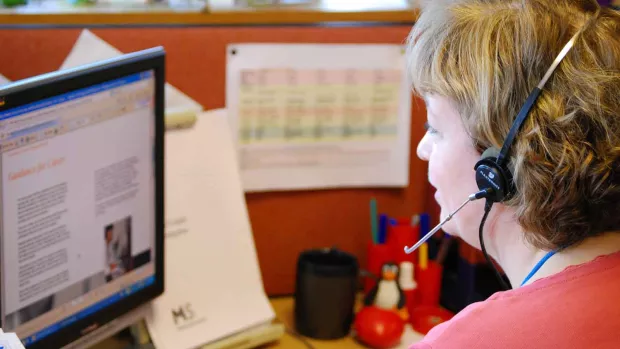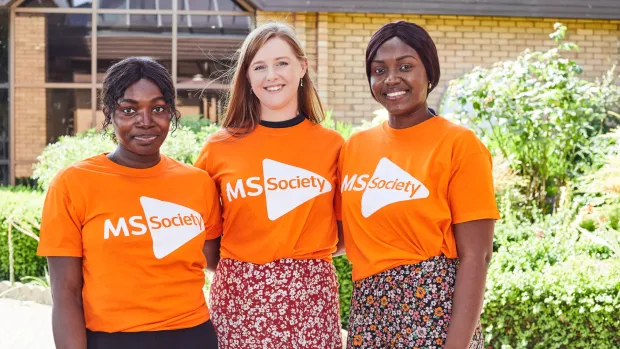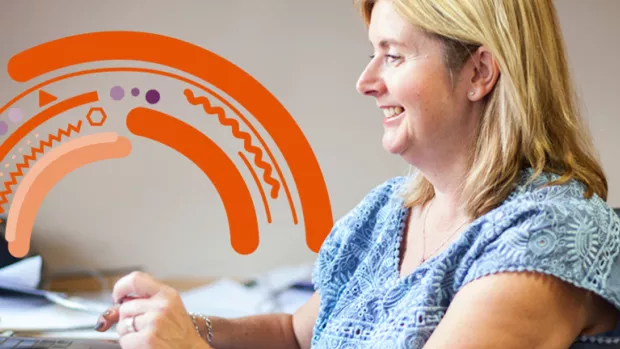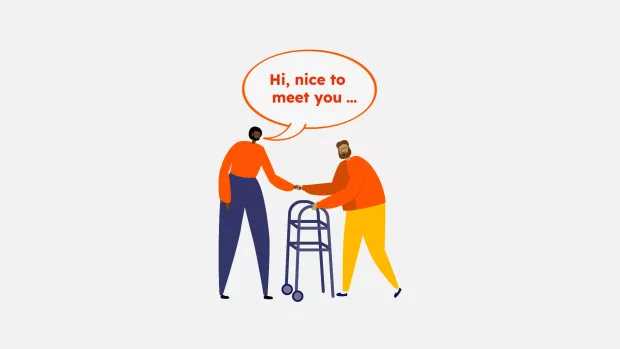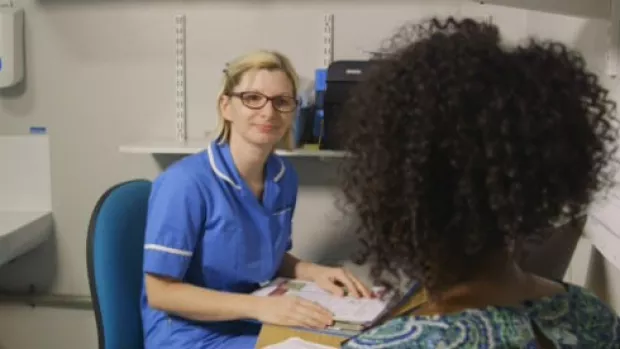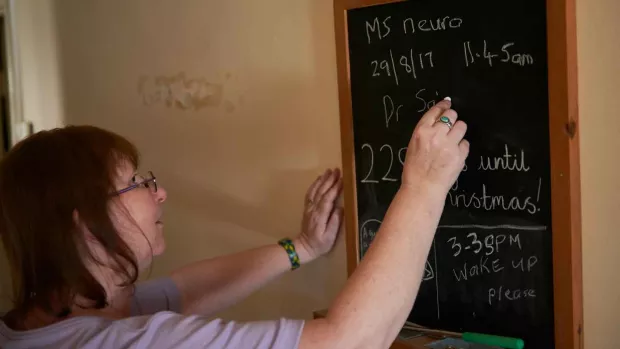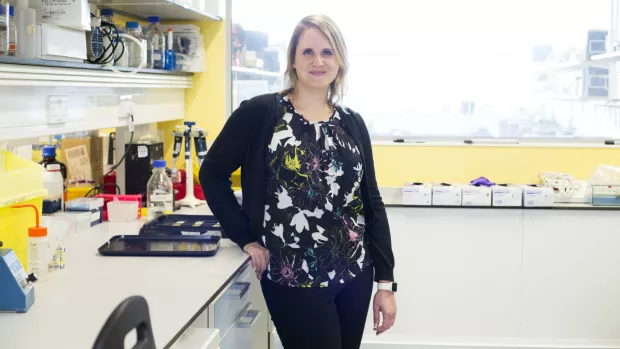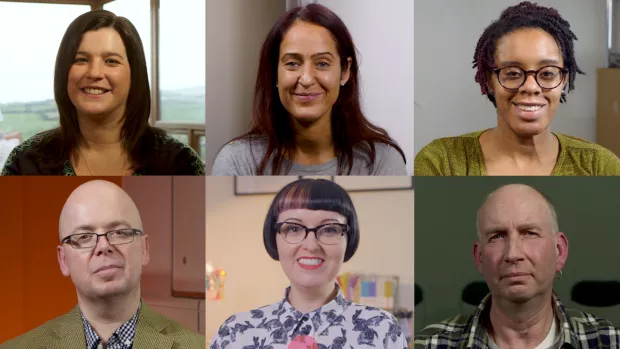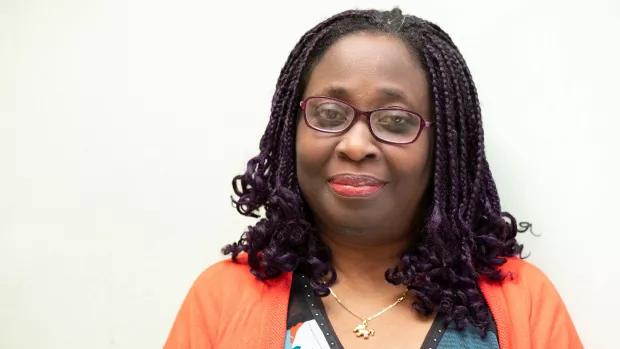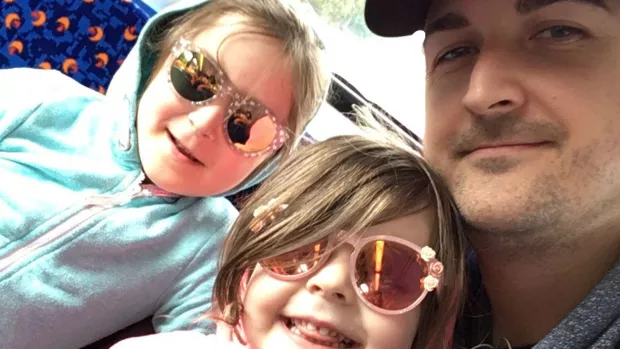
Newly diagnosed
Being newly or recently diagnosed with MS (multiple sclerosis) can feel overwhelming. The first thing to remember is there's a whole community of people here to help.
Read the latest information about care and support and coronavirus COVID-19
Whether you're looking for someone to talk to, information on what happens next or how to tell people about your MS, we're here for you.
I’ve just been diagnosed with MS - what happens next?
What happens after your diagnosis depends on a few things:
- How active your MS is at the moment. Are there any symptoms that are troublesome and could be treated?
- What support your MS team can offer and how soon.
- What you'd like to happen. There are choices you can make about how you manage MS and your environment.
MS is unpredictable, so it’s often hard for people with MS to get the best from health care services. The NHS is the world’s largest publicly funded health service. Knowing how it works can make a big difference to the care you get.
Questions about MS
Life doesn't stop at diagnosis and your work or education, family and social life will continue.
If you're worried MS will make a big difference to your life or alter your choices, remember everyone's MS is different. It's not possible to predict exactly how you'll be affected and whether this could change your path in life.
Life with MS these days is more about what you can do, not what you can’t. We’re here to support you with information, our MS Helpline, our local groups and our online forum.
Find out more about looking after your health and living well with MS
At the moment, there’s no cure for MS. Once you’ve been diagnosed with MS, you have it for life.
Research is trying to find ways to stop MS. Until then, there are ways to manage your condition. These include disease modifying therapies (DMTs).
If you have relapsing MS, a DMT can curb how many relapses you have or how bad they are. And it can also slow down how fast you’re likely to become disabled.
The dozen or so DMTs we have work for relapsing MS. The first drug that can help with early primary progressive MS came along in 2018.
The last twenty years have seen huge advances in how MS is treated.
If you’ve been diagnosed with relapsing MS, doctors recommend that you start taking a disease modifying therapy (DMT) as soon as possible after you’re diagnosed.
DMTs are treatments that could control it or slow it down. They aren’t a cure, but having one could make a real difference.
Having a DMT means you’re less likely to get relapses, or your relapses will be less serious. A DMT can also reduce inflammation and prevent MS from damaging nerves. This means you should get less disability in the long run.
It’s best you speak to an MS specialist, like a neurologist who has many patients with MS. An MS nurse can also talk about treatments in general. Only an MS specialist can give you advice on treating your MS and prescribe drugs for you.
To see your specialist you don’t have to wait for your next appointment to come round. You can ask to see them before then. Ask your GP or MS nurse to book one for you. Official guidelines say you should see an MS specialist at least once a year to talk about your treatment options. And that if this doesn't happen, you should ask your GP, MS nurse or neurologist to arrange this appointment.
If you don’t already have an MS specialist, ask your GP to refer you to one.
One of the first questions many people have when they’re newly diagnosed with MS is: “Will I still be able to drive?” The good news is that most people with MS continue to drive as normal.
If you have a driving licence, you have to tell the Driver and Vehicle Licensing Agency (DVLA) that you have been diagnosed with MS. They will assess your fitness to drive using the information you provide, and they may ask you to have a medical examination or a driving assessment.
You also need to tell your insurance company about your condition and about any adaptations you have.
Many people worry their children will also get MS. There is a genetic angle to MS, but it isn't the whole story and MS is not directly inherited.
MS is not passed directly from parents to their children because it is not caused by a single gene. While MS can occur more than once in a family, it’s more likely that this won’t happen.
In the UK, around one person in every 600 currently has MS. The chances of a person developing MS at some point during their lifetime is 1 in 330.
There‘s around a 1.5% chance of a child developing MS if one parent has it. This means about 1 in 67 would get MS.


